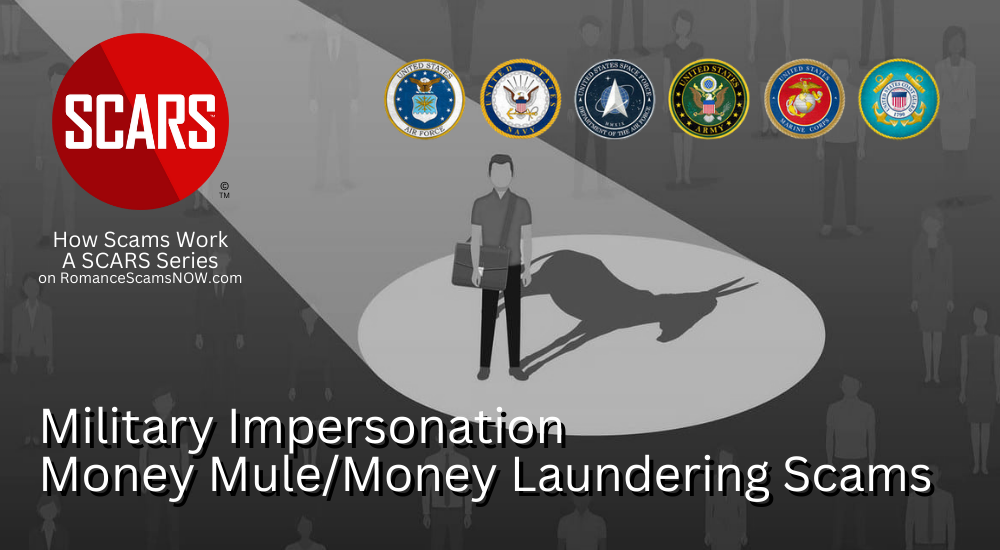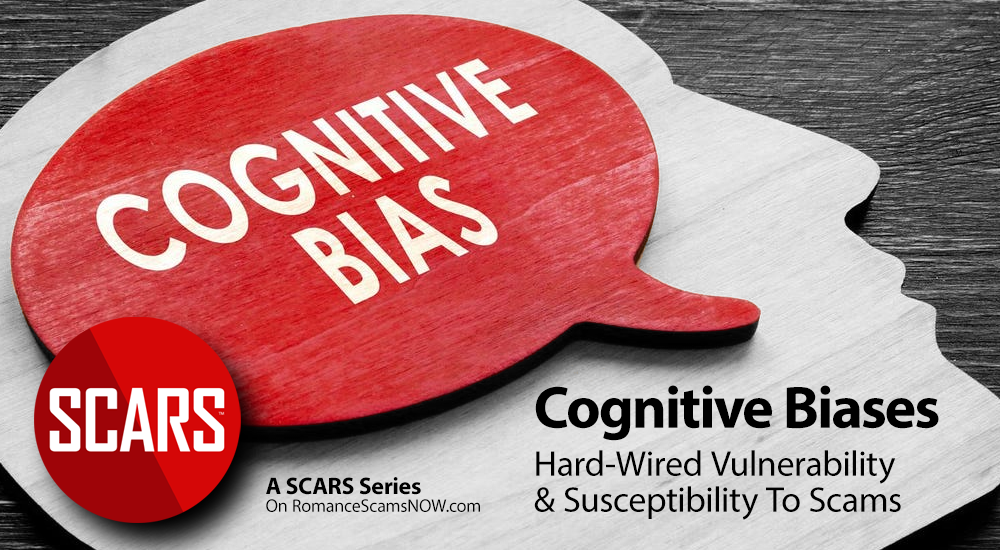The FBI & Scam Victims: Resources & Information
Financial Crime and You – From the U.S. Department of Justice, Federal Bureau of Investigation, Victim Services Division
The following is extracted from the FBI’s brochure for victims of financial crimes and includes important information for scam and financial crime victims:
To reach the: Federal Bureau of Investigation, Victim Services Division – visit or call: (202) 324-3000 | www.fbi.gov/resources/victim-services
The Impact of Financial Crime
The impact of a financial crime may have serious and long-term consequences. Individuals who experience financial crimes report feeling isolated, hopeless, and betrayed, but there is help. The FBI realizes that you will most likely have questions about how your case will be handled and what services and information will be available to you.
The Investigation
Although the months or years ahead may be difficult for you and your family, your cooperation is important to ensure that justice is fully achieved. The investigation of a possible financial crime can be lengthy and complex and often involves several law enforcement agencies. Some investigations may involve hundreds of victims in one case. During this process, your case agent or Victim Specialist will remain your principle contact. If you learn of or remember anything additional about the crime, contact the case agent. Due to the sensitive nature of an ongoing federal investigation, information available to you will be limited.
For information on your rights during the investigation, please refer to the FBI Help for Victims of Crime brochure.
How Will I Obtain Information?
Federal crime victims have a number of rights during their participation in the criminal justice system, including the right to limited information about the status of the case.
You may either receive periodic updates through our Victim Notification System or you may contact the case agent or agency’s Victim Specialists on an ongoing basis.
It is very important that you report any address changes or changes in contact information during the criminal investigation, prosecution, and incarceration of the defendant.
What Can I Do About My Financial Losses?
Collect and save all documents and electronic transmissions that directly relate to your loss, including expenses incurred during your participation in the investigation or prosecution. If an arrest is made and a conviction is obtained, the judge may require the offender to pay restitution. This means the sentencing judge may order a convicted defendant to pay identified victims for certain losses suffered as a result of the crime. You may be asked to provide verification of your loss amount.
In addition, some losses may be tax-deductible, Tax laws are complicated, so consult a qualified tax advisor or the Internal Revenue Service to see if your losses qualify.
There may also be federal or state agencies that have remission or compensation funds depending on the license of an individual or business that committed the fraud.
Finally, if you believe the fraud perpetrator had assets, you may be able to recover losses through a civil lawsuit. Contact your state or local bar association for the names of attorneys who specialize in this area of law to determine if your case is appropriate for civil action.
What Can I Do to Address Financial and Credit Problems?
Some victims have losses so severe that they are unable to meet current financial obligations. If personal information was stolen, credit may be affected which can impact your immediate financial situation. In both of these situations, consider these options:
- Contact creditors and/or a nonprofit credit counseling service to help you to reduce or modify your payments or help you to limit access to your accounts.
- Submit a written statement to local and national credit reporting agencies about your victimization. Provide supporting documentation such as a copy of the criminal judgment.
- Be alert. Many fraud artists contact victims claiming they can help recover your losses for a fee or may sell your name to others committing financial scams. If called, contact the case agent or your state’s Consumer Protection Agency to verify the company’s legitimacy.
Many victims feel anger, resentment, frustration, shame, embarrassment, and guilt, as well as fear for financial security and personal safety. Some victims find it helpful to seek services from a counselor, clergy member, or advocacy program.
Contact your Victim Specialist for resources in your area. Additional national resources for financial and credit assistance are located in the resources section of this brochure.
Will I Get My Money Back?
Victims often want to know if they will get their money back through restitution. Many federal crimes require payment of restitution; however, the reality is that convicted defendants with no money or limited potential to make money may be unlikely to ever make meaningful restitution, particularly in financial crime cases with many victims.
Restitution may also be awarded to the victim’s estate in the event of the victim’s death.
Be assured that the federal government will work earnestly to ensure that any assets owned by a sentenced defendant can be considered for payment of court-ordered restitution. An order of restitution is enforceable for 20 years from the date a criminal judgment requiring restitution is filed or for 20 years after the convicted defendant’s release from prison.
To ensure the proper receipt of any ordered restitution, it is especially important that you notify your Victim Services Program or the Victim Notification System of any changes in contact information.
Resources
Report Financial Crime To These National Databases (In Addition To Your Local Law Enforcement)
Federal Trade Commission (FTC) Collects information about ongoing scams to share with law enforcement.
1-877-382-4357 | www.ftccomplaintassistant.org
Internet Crime Complaint Center (FBI) – To report internet-related crimes www.IC3.gov/complaint
General Help and Reporting
Victim Connect Resource Center – Provides service referrals to crime victims in need 1-855-484-2846
National Suicide Prevention Lifeline – Free confidential support 24/7 for people in distress 1-800-273-8255 | https://suicidepreventionlifeline.org
Do Not Call Registry (FTC) 1-888-382-1222 | www.donotcall.gov
Medicare/Medicaid Fraud Tipline | 1-800-447-8477 | https://oig.hhs.gov/fraud/report-fraud/index.asp
National Association of Attorneys General – Locating and filing complaints with state consumer protection services 1-202-326-6000 | www.naag.org
For Identity Theft Related Crimes – FTC ID theft Hotline and To File Complaint 1-877-438-4338 | www.identitytheft.gov
National Credit Reporting Agencies
Contact one to place a temporary fraud alert for all three
- Equifax: 1-800-525-6285 | www.equifax.com
- Experian: 1-888-397-3743 | www.experian.com
- Trans Union: 1-800-680-7289 | www.transunion.com
Annualcreditreport.com – Request free credit reports annually at this website
Identity Theft Resource Center – Free online and phone support for victims 1-888-400-5530 | www.idtheftcenter.org
IRS identity theft-related guidance https://www.irs.gov/identity-theft-fraud-scams
For Older & Vulnerable Adults
U.S. Dept. Justice – Online resource for guidance on older adult abuse/exploitation www.justice.gov/elderjustice
US. Admin. Aging Eldercare Locator – To find local Adult Protective Services and other resources 1-800-677-1116 | https://eldercare.acl.gov
Financial Industry Regulatory Authority (FINRA) Securities Helpline for Seniors | 844-574-3577 | http://www.finra.org/investors/finra-securities-helplineseniors
Senate Subcommittee on Aging Fraud Hotline – 1-855-303-9470 | https://www.aging.senate.gov/fraudhotline
Computer Safety Tips For All Ages – National Cyber Security Alliance www.staysafeonline.org | www.stopthinkconnect.org
For Financial and Credit Assistance – Taxpayer Advocate (IRS) Assistance with federal tax issues you can’t resolve on your own 1-877-777-4778 | https://taxpayeradvocates.irs.gov
Consumer Financial Protection Bureau – Assists to resolve complaints involving financial institutions or products such as credit card issues, mortgages, credit reporting agencies, student loans, payday lenders 855-411-2372 | www.consumerfinance.gov
U.S. Commodity Futures Trading Commission – File a complaint or for remissions if you were defrauded by a company http://www.cftc.gov/ConsumerProtection
U.S. Courts – General information about federal bankruptcy laws and the process. www.uscourts.gov/services-forms/bankruptcy/bankruptcy-basics
Making Home Affordable – Difficulty paying your mortgage? Find options and tips to avoid foreclosure 1-888-995-4673 | www.makinghomeaffordable.gov
Your FBI Victim Specialist
The FBI Victim Specialist assigned to your case is there to make sure you have information and support to help you get through this process. She or he will explain the criminal justice process, listen to your concerns, help you find counseling and other forms of assistance, and keep you updated on the status of the case. The Victim Specialist works for the FBI but is not an Agent. Instead, the Victim Specialist is often someone with a social work or counseling degree and experience working with young people and adults who have been victims of violent crime.
The Victim Specialist works as part of a team with the FBI Agent and employees from the U.S. Attorney’s Office. While most of the discussions that you have with your Victim Specialist are confidential, there may be times when the Victim Specialist will need to share information you provide with other team members.
If you have questions about limited confidentiality, you may contact your Victim Specialist for clarification. Generally, the Victim Specialist and the Agent will make every effort to protect your privacy.
Federal Bureau of Investigation, Victim Services Division,
J. Edgar Hoover Building,
935 Pennsylvania Ave. NW
Washington D.C. 20535
(202) 324-3000
www.fbi.gov/resources/victim-services
vsd-financial-crime-and-you-brochure-2018
TAGS: SCARS, FBI Resources, Information About Scams, Anti-Scam, Scams, Scammers, Fraudsters, Cybercrime, Crybercriminals, Romance Scams, Scam Victims,
SCARS™ Team
Society of Citizens Against Relationship Scams Inc.
A Worldwide Crime Victims Assistance Nonprofit Organization
Visit: www.AgainstScams.org
Contact Us: Contact@AgainstScams.org
PLEASE SHARE OUR ARTICLES WITH YOUR FRIENDS & FAMILY
HELP OTHERS STAY SAFE ONLINE – YOUR KNOWLEDGE CAN MAKE THE DIFFERENCE!
The Latest SCARS Posts:
FIND MORE SCAM NEWS
«SCAMCRIME.COM»
JOIN US ON FACEBOOK
«CLICK HERE»
END
MORE INFORMATION
– – –
Tell us about your experiences with Romance Scammers in our
« Scams Discussion Forum on Facebook »
– – –
FAQ: How Do You Properly Report Scammers?
It is essential that law enforcement knows about scams & scammers, even though there is nothing (in most cases) that they can do.
Always report scams involving money lost or where you received money to:
- Local Police – ask them to take an “informational” police report – say you need it for your insurance
- U.S. State Police (if you live in the U.S.) – they will take the matter more seriously and provide you with more help than local police
- Your National Police or FBI « www.IC3.gov »
- The SCARS|CDN™ Cybercriminal Data Network – Worldwide Reporting Network on « www.Anyscam.com »
This helps your government understand the problem, and allows law enforcement to add scammers on watch lists worldwide.
– – –
To learn more about SCARS visit « www.AgainstScams.org »
Please be sure to report all scammers
on « www.Anyscam.com »
Disclaimer:
SCARS IS A DIGITAL PUBLISHER AND DOES NOT OFFER HEALTH OR MEDICAL ADVICE, LEGAL ADVICE, FINANCIAL ADVICE, OR SERVICES THAT SCARS IS NOT LICENSED OR REGISTERED TO PERFORM.
IF YOU’RE FACING A MEDICAL EMERGENCY, CALL YOUR LOCAL EMERGENCY SERVICES IMMEDIATELY, OR VISIT THE NEAREST EMERGENCY ROOM OR URGENT CARE CENTER. YOU SHOULD CONSULT YOUR HEALTHCARE PROVIDER BEFORE FOLLOWING ANY MEDICALLY RELATED INFORMATION PRESENTED ON OUR PAGES.
ALWAYS CONSULT A LICENSED ATTORNEY FOR ANY ADVICE REGARDING LEGAL MATTERS.
A LICENSED FINANCIAL OR TAX PROFESSIONAL SHOULD BE CONSULTED BEFORE ACTING ON ANY INFORMATION RELATING TO YOUR PERSONAL FINANCES OR TAX RELATED ISSUES AND INFORMATION.
This content and other material contained on the website, apps, newsletter, and products (“Content”), is general in nature and for informational purposes only and does not constitute medical, legal, or financial advice; the Content is not intended to be a substitute for licensed or regulated professional advice. Always consult your doctor or other qualified healthcare provider, lawyer, financial, or tax professional with any questions you may have regarding the educational information contained herein. SCARS makes no guarantees about the efficacy of information described on or in SCARS’ Content. The information contained is subject to change and is not intended to cover all possible situations or effects. SCARS does not recommend or endorse any specific professional or care provider, product, service, or other information that may be mentioned in SCARS’ websites, apps, and Content unless explicitly identified as such.
The disclaimers herein are provided on this page for ease of reference. These disclaimers supplement and are a part of SCARS’ website’s Terms of Use.
Legal Notices:
All original content is Copyright © 1991 – 2020 Society of Citizens Against Relationship Scams Inc. (D.B.A SCARS) All Rights Reserved Worldwide & Webwide. Third-party copyrights acknowledge.
SCARS, SCARS|INTERNATIONAL, SCARS, SCARS|SUPPORT, SCARS, RSN, Romance Scams Now, SCARS|INTERNATION, SCARS|WORLDWIDE, SCARS|GLOBAL, SCARS, Society of Citizens Against Relationship Scams, Society of Citizens Against Romance Scams, SCARS|ANYSCAM, Project Anyscam, Anyscam, SCARS|GOFCH, GOFCH, SCARS|CHINA, SCARS|CDN, SCARS|UK, SCARS|LATINOAMERICA, SCARS|MEMBER, SCARS|VOLUNTEER, SCARS Cybercriminal Data Network, Cobalt Alert, Scam Victims Support Group, are all trademarks of Society of Citizens Against Relationship Scams Inc., All Rights Reserved Worldwide
Contact the law firm for the Society of Citizens Against Relationship Scams Incorporated by email at legal@AgainstScams.org











Please Leave A Comment - Tell Us What You Think About This!